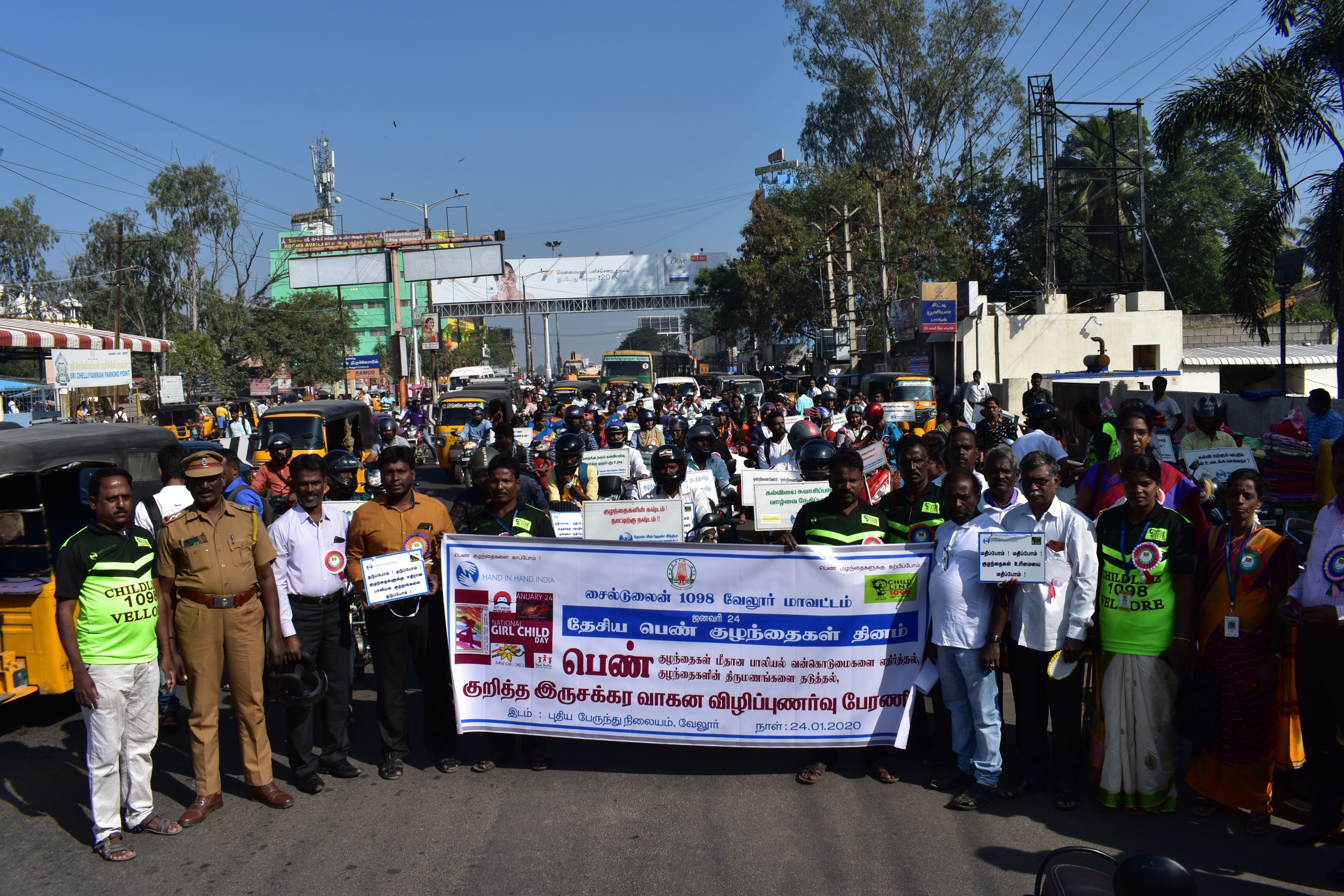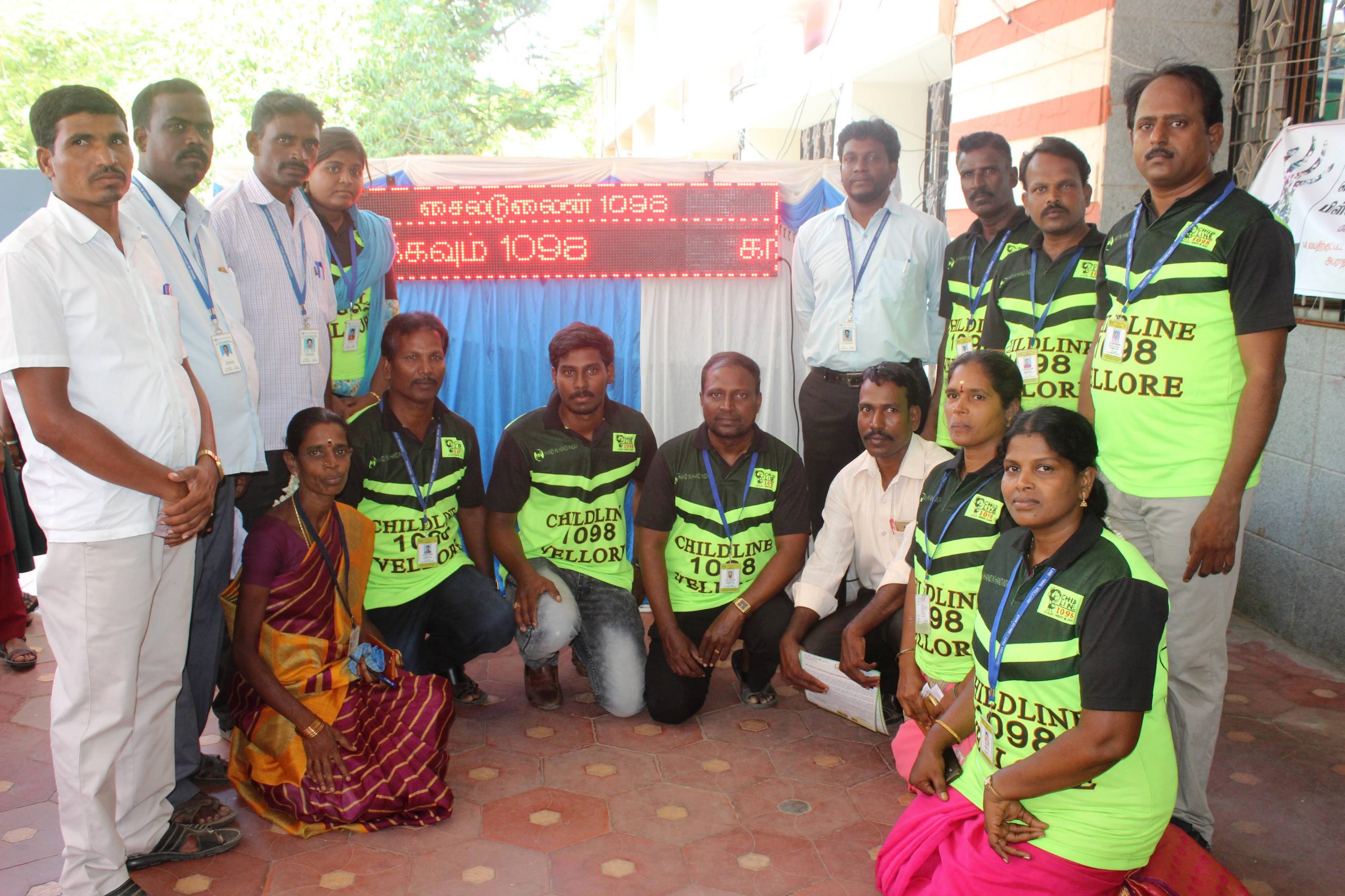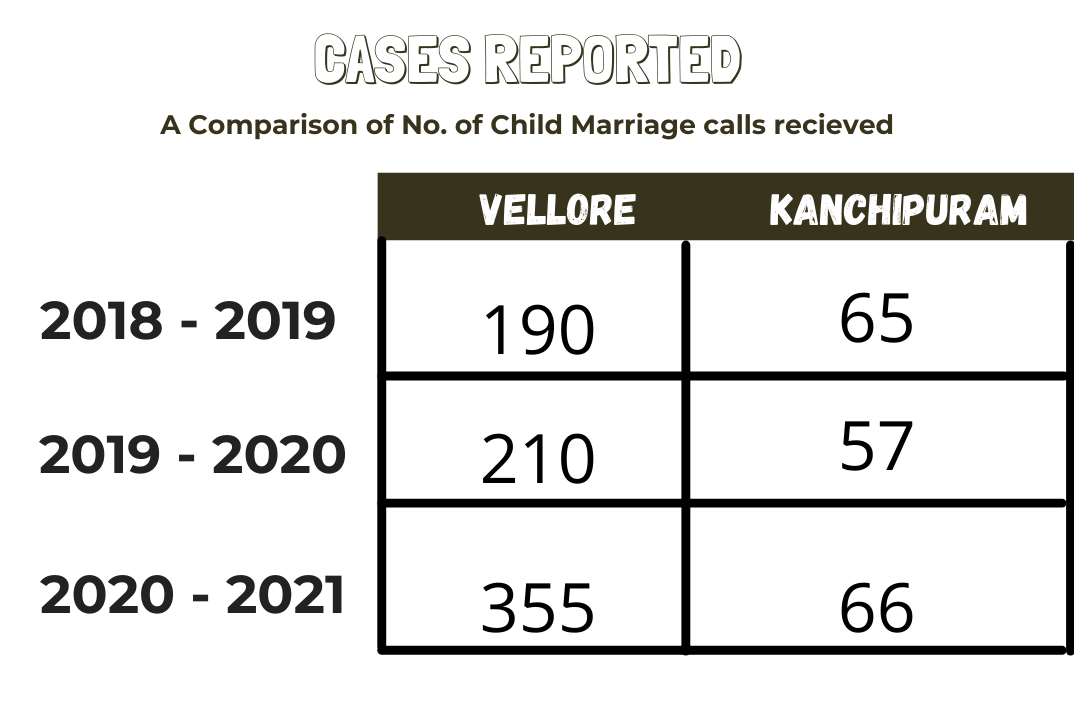We have heard many people ask us over time; ‘Does child marriage still exist in the 21st century? Isn’t that ancient history?’
Well, it is not and we at Hand in Hand India are going to tell you how technology and the pandemic incentivized child marriage.
Technology has been often accused to be a bad influence on the current generation. Yet, when countries shut down for months, everyone turned towards the electronic equipment/gadgets to ensure that learning sustains. Even a daily waged worker was forced to buy a smartphone for their child to obtain and keep in touch with knowledge. Malini, 17 (name changed to maintain confidentiality) was thrilled to receive her new smartphone. Though the phone was provided solely for online classes, Malini used it to stay in touch with Manoj, 24 (name changed to maintain confidentiality) who worked at the local bus stand. The lockdown forbade them from meeting but technology groomed their love affair. The couple was seen endlessly texting and constantly on calls. When the parents confiscated the device stating the difference in the behavior of the girl as the reason, the couple resorted to elope and got married at a temple. If you are wondering why we picked this story, then you surely missed noticing something.
Have you identified it yet?
Fine, we’ll help you; it is the age of the girl. The legal age of marriage in India is 18. Yes, Malini is underage. Hence this marriage is illegal and a criminal act. An FIR filed by Malini’s parents and Hand in Hand India led to Manoj’s capture and arrest. Manoj, being the major, was accused of the crime. Malini was given counseling and handed over to her parents who agreed to care for her.
We at Hand in Hand (HIH) India work towards eradicating child marriage and other child-related crimes in partnership with Childline India. Childline India Foundation is the nodal agency of the Union Ministry of Women and Child Development. HIH India is the Nodal agency for Childline in Kanchipuram and the Collaborative agency in Vellore, Ranipet, and Tirupathur districts. The lockdown may have kept millions homebound but a new crop of silent child marriages emerged. During the lockdown alone, the HIH team intervened and prevented some 401 marriages. The team at HIH noted that the majority of cases reported were a result of digital relationships. The second influencer was the financial burden exerted on the family by the pandemic job loss.
‘Covid Kalyanams’
These Covid Kalayanams (Kalyanam meaning marriage in Tamil), provided a great opportunity for the families to plan a budget wedding and avoid the irrelevant spending on guests and festivities. Most marriages took place in temples due to the low/no cost and in hopes of hiding it from officials and society. The team noted that some marriages were arranged by the grandparents of children from broken families. The former took it their responsibility to have the child settled before they passed away. The team noted that there has been a 170% increase in child marriages this year due to the lockdown.
Spreading Awareness and Care
We at HIH India have numerous awareness and outreach programs arranged to educate the people about child rights. The HIH India team has conducted 69 awareness programs attended by 7213 participants to date. Most of the awareness programs take place door to door where pamphlets and booklets are handed out to the people. During these programs, the team understood that many are aware of the laws and illegality of the act. The HIH India team in partnership with Childline India has awareness programs organized in slums, tribal communities, bus stations, for government employees, schools, colleges, etc. The team also organizes night awareness programs.

What’s the point of spreading awareness despite people’s ignorance you ask? Well, most people are aware of the age limit but they aren’t aware of the consequences that arise later. There are cases where the child is taken from the parents, to ensure that this does not happen again. This is just the extreme measure taken if even after a warning the family goes ahead with the marriage. But in scenarios when the marriage does take place, the child is handed over to the Child Welfare Committee (CWC). The CWC officer enrolls the child at a Government Home. Here the child is cared for until they turn 18.
The Action Force
Once a complaint call is received about a potential child marriage, an entire cavalry is formed. The police are informed along with the District Child Protection Unit, Childline India team, and the CWC. A thorough investigation is conducted to ensure that the information received is correct. As this involves the safety of a child, all departments respond promptly and immediate deployment of teams takes place. Hand in Hand India works in close partnership with all the stakeholders and has also conducted awareness programmes with concerned officials in attendance.

During the investigation process, there are numerous hurdles and backlash the team endures. Families sometimes threaten to hurt themselves if the child is taken away. Town people blocked roads to ensure the team does not reach the marriage location. The Covid19 lockdown added some unforeseeable hurdles to the team. The team stated that due to the scarcity of public transport, they used their vehicles and transports to reach the locations. There were situations when they took to walking to reach the destination.

In the financial year of 2020-2021 alone the HIH India Vellore team received and tended to 888 calls in total via 1098. The Covid-19 induced lockdown 355 child marriage cases were reported, a 75% increase from the previous year in the Vellore district. The unprecedented lockdown event enabled people to break all records and create a new extremely implausible number
The HIH India team continues to conduct awareness drives and hopes to obliterate the practice of Child Marriage in India. The HIH India team works day and night and against all odds to assure that this objective becomes a reality. Aside from its partnership with Child Line, HIH India runs residential special training centers for child and bonded laborers in Tamil Nadu and Madhya Pradesh with support from Samagrah Siksha. Through our initiatives, more than 3,43,037 have been mainstreamed into formal Government schools and we have converted more than 1142 panchayats (groups of villages) into child-friendly ones. Read more about our work here.






